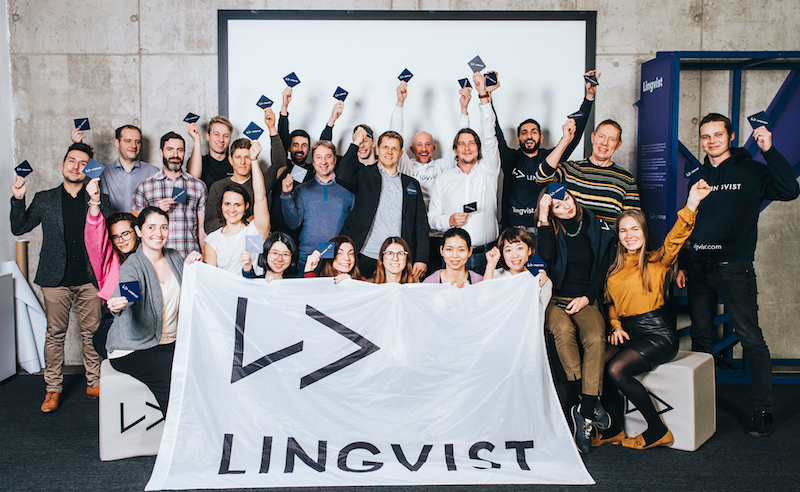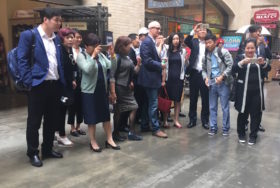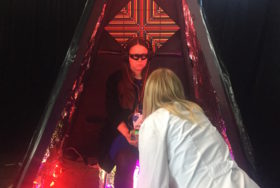
Chasing your dreams is the bold mark of an Accidental. The classic archetype with the familiar but strikingly individual origin story. The Accidental starts with a passion project, that all-consuming obsession that was never designed to become a full-time gig. This is just how it happened for Mait Müntel, Estonian physicist turned tech founder. He was comfortably following a traditional trajectory as a scientist, and then a hobby took him on a 90-degree turn toward a radically different future that would open horizons for language learners around the world.
[Below content is excerpted from The Entrepreneur’s Faces, © 2020 by Jonathan Littman and Susanna Camp. All rights reserved.]

Mait Müntel’s Awakening
Mait Müntel’s first focus was on the stars. The Tartu Observatory was founded in his native Estonia in 1824, equipped with a nine-inch Fraunhofer refractor, at the time the largest achromatic telescope in the world. Several legendary Estonian and European astronomers would take up residence at the famed Tartu Observatory, men who mapped Mars and played a critical role in unlocking the large-scale structure of the universe, and Mait hoped to follow in their celestial steps. He had a gift for math, and began studying astronomy and physics at the University of Tartu. During his second year, one of his toughest professors challenged him after he’d excelled in a difficult exam: “I want to see you as a physicist.”
Mait was touched by that early vote of confidence and fully embraced his future as a scientist. While working on his doctorate, he heard about the legendary CERN laboratory, soon to house the world’s largest particle accelerator, and arrived in Switzerland in the summer of 2004, making the switch from nuclear to particle physics, “from studying the biggest things to the smallest things.” Mait was part of the core CERN team of physicists who began writing programs to simulate particle collisions even before the Hadron accelerator was built. It was the first real programming Mait had ever done. These were programs to simulate what happens during millions of particle collisions – 600 million times a second, “and millions and billions of tracks” – programs to prove the fundamental structure of the universe, one particle at a time.
Mait spent his summers at CERN, gradually staying for longer and longer periods until eventually he was living at the lab near Geneva, Switzerland – in French-speaking territory. Sturdy with a wavy mop of light brown hair and thick glasses, Mait was enthusiastic and good natured. He was at heart a considerate guy, and was acutely embarrassed that he did not speak the local language. It was, as he recalls, “A very personal feeling.” He had grown up during the Soviet occupation of Estonia and it had bothered him that the non-native Russian population had never learned the local language. “It was kind of an attitude,” he said, and not a welcome one. And now here he was living and working in Switzerland. “And I’m not learning French. I’m being as impolite as the Russians. It kind of tortured me.”
Mait’s need was elemental. Develop some ingenious method to learn French quickly. But for all of Mait’s gifts in math and physics, he had never shown promise in languages. After ten years of Russian in school, he’d learned almost nothing. His English had improved – it was the language spoken at CERN – but still he struggled. One day he thought to himself, If computing processing power can be used to find unknown particles, maybe it could be harnessed to teach a language. To nearly everyone else on the planet this might have been an idle thought, quickly forgotten. But Mait was a remarkable scientist who had no compunction about exploring an unproven and extraordinary concept. The celebrated Higgs boson project had ended, and he had a little extra time on his hands, and the tremendous computational power of CERN’s supercomputers at his fingertips. He wondered: What, theoretically, would be the shortest possible time needed to learn a language, if we could optimize everything? He ran some hypothetical estimates, and came up with a radically low figure, under 200 hours. It seemed too good to be true.
Next week: Joe Boggio, The Collaborator.





